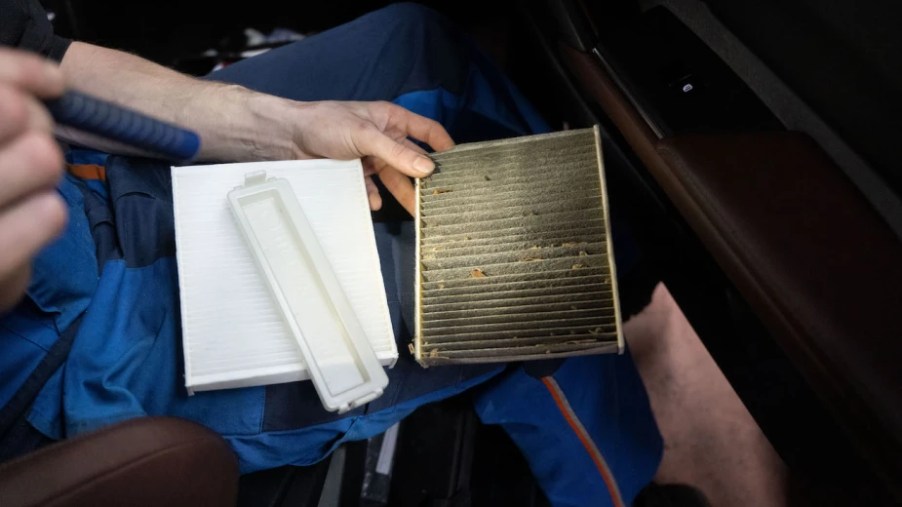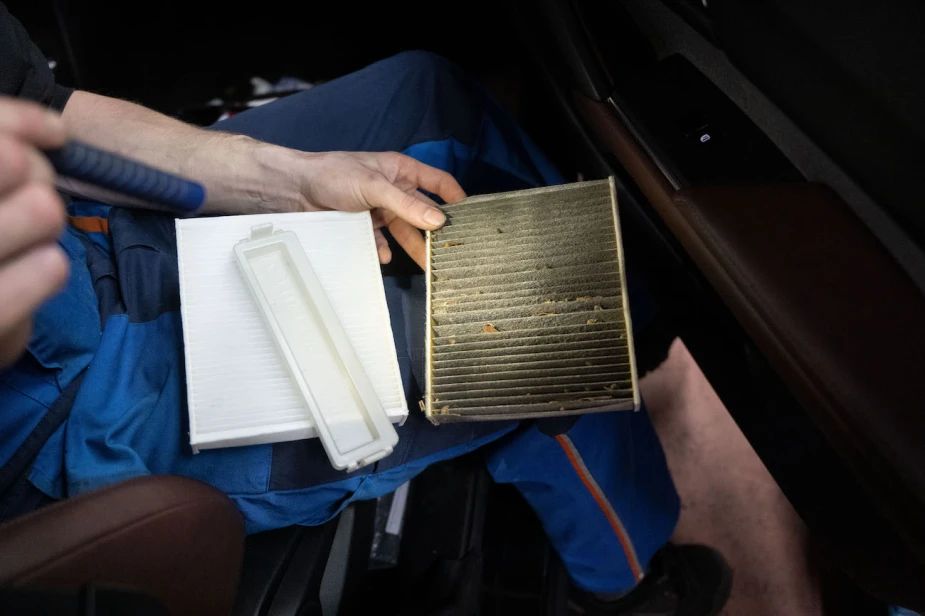
Are K&N Filters Safe?
With marketing that includes a ‘million-mile warranty’ and ‘guaranteed horsepower and torque improvements’, it might seem like a K&N filter is an easy way to make any car better. And while they certainly provide more airflow, are K&N filters safe to use in your engine? Some popular Youtubers have done the work to find out, and here’s what we learned.
Project Farm performs side-by-side air filter tests
Popular product tester Project Farm performed a side-by-side test of the K&N air filter along with filtration solutions from WIX, Purolator, and AC Delco. In those tests, the K&N filter did indeed provide greater airflow and less resistance. However, that added volume came at a price.
While more air is good for performance, it turns out that the more free-flowing filter also allowed more dust and dirt particles to pass through the intake.
When particles were dropped onto the filters, the Wix and Purolator filters allowed zero particles to pass freely. Meanwhile, the K&N filter saw 2972 particles per .01 cubic feet. When hit with a sudden burst of air, both the Wix and Purolator filters were below 50 particles. The K&N isn’t as safe; it allowed 421 particles to pass through the filtration media. Steady flow did show an improvement for the expensive filter at just five particles, though that may be because so much of the material had already passed through the material in the first two tests. Still, the WIX filter outperformed its more expensive competition, blocking all particles from passing through.
Engineering Explained takes K&N Filters to the engine dyno
While the Project Farm video focused mainly on the filtration of each filter brand, Engineering Explained put the less safe K&N filter on the engine dyno alongside a CarQuest air filter. Here, the K&N showed its strength, adding four horsepower and 10 pound-feet of torque to Jason’s Subaru Crosstrek. The CarQuest also showed an improvement, though not quite the improvement of the more expensive air filter. In fact, the cheap CarQuest filter was just one horsepower and two pound-feet of torque off of the filter that cost triple the money.
Is a K&N filter safe enough for the performance?
While K&N filters offer legitimate performance upgrades, it’s not the type of punch that is meaningful when on the road. The uptick in engine contamination hardly seems worth the trade for the scant performance gains. Worse yet, K&N Filters can cost up to twice as much as other quality aftermarket air filters. An air filter that is less safe and costs more doesn’t seem like wa worthwhile trade.

We get it. Trading longevity for performance isn’t a new concept for us car enthusiasts. But the price and potential danger of a high-flow K&N Filter doesn’t seem worth it if it isn’t safe. For those who really want to improve airflow into the engine, a full-on intake is the smarter way to go. It’ll cost quite a bit more, but it will also be safer for the engine in the long term and offer greater performance gains than simply swapping air filters.



